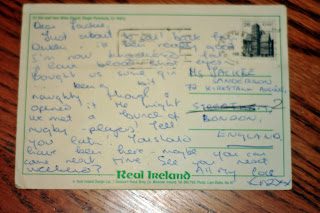I won’t lie, I went into this rather blind. Meaning, I had no expectation of what a Woolf novel would involve, I did not have an idea about the plot, and I even avoided reading the introductions in the edition I have to further add to this Woolf-Dalloway-ignorance (also, don’t worry I will get around to reading the introductions by Carol Ann Duffy and Valentine Cunningham soon because I am interested in what they have to say).
Mrs Dalloway is very much a novel of character. The events all take place on a single day in the middle of June post-World War I; this day, and the evening party of Mrs. Dalloway, seem to be there as a backdrop to put the characters in context but, other than that, rather unimportant. Woolf continually jumps from character to character as she gives you snippets into the life and consciousness of these individuals that fill the same world but in dramatically different ways. Although the novel is narrated in third-person, her narrative voice takes on the tone of the characters she describes (very similar to the narrative style in James Joyce’s The Dead). For example, it is easy to find yourself confused during the descriptions of Septimus Warren Smith but it is very fitting as he feels lost in his own world due to the shell-shock and hallucinations caused by his time in the war.
As I was reading, I came across a few passages that really struck me, not necessarily due to their importance to the novel but for my own interest (and hopefully your interest too).
The first is a description of the women in London that Peter Walsh comes across and his enjoyment of how they ‘paint’ themselves;
of course one fell in love with every woman one met. There was a freshness about them; even the poorest dressed better than they did five years ago surely; and to his eye the fashions had never been so becoming; […] the delicious and apparently universal habit of paint. Every woman, even the most respectable, had roses blooming under glass; lips cut with a knife; curls of Indian ink; there was design, art, everywhere (Woolf 62).
I had quite a lot of enjoyment imaging Virginia Woolf flipping the pages of a ‘celebrity’ magazine and seeing where the ‘art’ of paint has lead many! I would also love to see her thoughts on the ‘duckface’! (On a side note, I’m back to typing after finding myself enthralled in looking at duckface(s) on the internet and realizing it is not a good use of my time).
I can imagine the hotels of the 1920s are very different from today but this passage made me think of every single hotel room I have ever been in (even the nice ones- you know, with a mint on the pillow and such).
These hotels are not consoling places. Far from it. Any number of people had hung up their hats on those pegs. Even the flies, if you thought of it, had settled on other people’s noses. As for the cleanliness which hit him in the face, it wasn’t cleanliness, so much as bareness, frigidity (Woolf 137).
I don’t know about you, but I really hate it when my flies have been with another woman (or man)!
It is argued a lot that the current internet generation is loosing a grasp on language- communication is not what it once was, it is lacking. A social system built on spoken words has been lost and replaced by social media and digital communication (somewhat funny as I type this on a blog). We hear arguments like this quite often (or at least I feel like I do) and they are always shown as a new problem, that this disconnect in communication has never existed between generations before. However, I found this same crisis in Woolf’s novel (if you take away the internet aspect).
the young people could not talk. And why should they? Shout, embrace, swing, be up at dawn […] the enormous resources of the English language, the power it bestows, after all, of communicating feelings […] was not for them (157).
So next time you’re told to get off the computer, and you don’t want to, just argue that the last generation never stopped swinging so you won’t stop surfing!
All in all, Mrs Dalloway is a very quick, worthwhile read if you are looking for something with little plot but numerous of character studies.
The edition I read was ISBN: 0-09-998240-4.
Citation:
Woolf, Virginia. Mrs Dalloway. London: Vintage, 2000. Print.




























